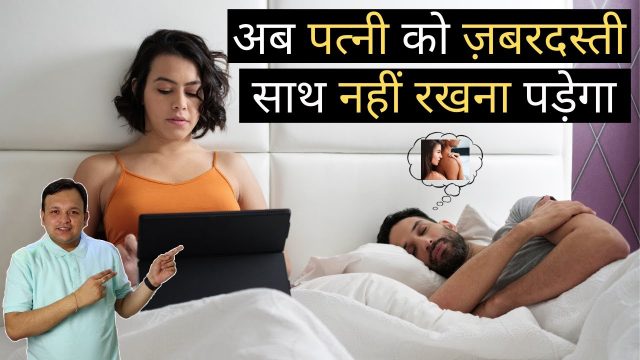Introduction
An individual’s life is said to change when they get married. Marriage is said to signal the start of one’s second stage of life. In Hinduism, it is regarded as a holy deed. Thus, according to Hindu Law, marriage is a sacrament. The supreme court ruled that sharing a joint existence, with all the joy and sorrow that come with it, is the true meaning of marriage.
Meaning of Conjugal Rights
As a result of this union, certain rights and duties arise, such as the right to remain together and have sexual relations with one another—basically, the rights arising from a marital bond—which both parties must uphold; if they do not, the courts may order them to. Conjugal Rights are the name given to these rights.
These rights form the foundation of marriage. The necessity for the couple to remain together is one of the primary duties of marriage, as was already said. According to Section 9 of the Hindu Marriage Act, 1955, the court may step in and mandate restitution, or the restoration of these rights, if one party decides to withdraw from the other party’s society without providing any reasons.
Section 9
The following is said in this section:
- The aggrieved party may petition the District Court for the restoration of conjugal rights
- when one of the husband or wife
- withdraws from social interaction without a justifiable reason.
- If the court is satisfied with the veracity of the petition’s claims and
- determines that there is no legal basis for refusing to grant the petition,
- it may then issue a decree restoring the conjugal rights in question.
Restitution of Conjugal Rights: Key Components
Following are the key components of Section 9 of the Hindu Marriage Act of 1955:
- There must be a lawful marriage that exists between the parties.
- One should withdraw from the society of another.
- This withdrawal must be made without any reasonable excuse.
- The court must determine if the claim that there is no legal justification for rejecting the judgment is true.
Advantage and Disadvantage
Both the husband and the wife must remain together if a court ruling is granted. However, if one of the parties does not abide by the court’s ruling within a year, a divorce will be granted. Additionally, the woman is affected and may be subject to forced sex, marital rape, disruption of her life, or loss of employment. This demonstrates how reparation is disadvantageous because the initial lawsuit for conjugal rights is pointless and will likely result in divorce.
Restitution of conjugal rights can be a beneficial legal provision while also having the potential to end many marriages. One of the reasons this section of the legislation is significant is that, unlike judicial separation or divorce, it is a remedy intended to preserve the marriage. By prohibiting the husband from avoiding the wife or vice versa without a valid cause, this legislation also aims to preserve conjugal rights. Its major objective is to keep husband and wife together by preventing their separation.
Decree
It should be emphasized that under section 9 of the Hindu Marriage Act, any spouse may bring a petition for restitution.
Constitutionality and Case Laws
The Andhra Pradesh High Court ruled in the matter of T. Sareetha Venkata Subbaiah v. State that this part was invalid. Because forcing the woman to stay with her husband when she does not want to did not respect her right to privacy, was the case.
However, the Delhi High Court eventually determined that Section 9 of the Act was legitimate in the case of Harvinder Kaur v. Harmandar Singh. In Saroj Rani v. S.K. Chadha, the court upheld the decision in this case. In the case of Saroj Rani v. SK Chadha, the Supreme Court ruled that articles like Article 14 and Article 21 are not relevant when discussing a couple’s marital life and the privacy of their house. The Supreme Court eventually put an end to the conflict between Section 9 and the Fundamental Rights in Saroj Rani v. Sudarshan Kumar Chandra.
Harvinder Kaur v. Harvinder Singh (AIR 1984 Delhi HC), said that “the goal of the degree was just to give an encouragement for the spouse to live together, and it does not force a reluctant wife to engage in sexual intercourse with the husband,” was maintained by the Supreme Court.
The constitutionality of this Section is once again up for debate in light of the Supreme Court’s declaration of the Right to Privacy as a Fundamental Right in K.S. Puttaswamy and Joseph Shine, which clarified that privacy depends on the exercise of autonomy by individuals and the Right to Privacy cannot be violated by considering familial structure a private space.
Feel free to connect with us, for a better understanding of legal concepts!
If still doubts persist, consult legal experts at












